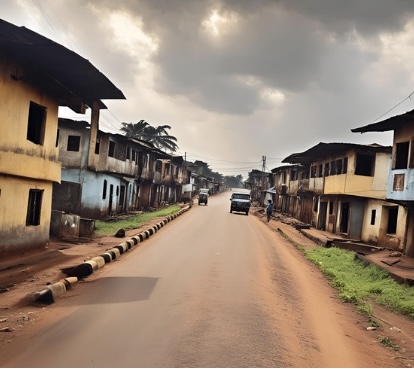Sit-at-home orders on October 21 and 22 in Igboland have nothing to do with IPOB. The group says it is an “obnoxious order” that is already crippling the economy.
The Indigenous People of Biafra (IPOB) has denied declaring a sit-at-home exercise for October 21 and 22 in Igbo land. The group stressed it always makes public announcements when it issues such orders. They urged the public to ignore what they called an “obnoxious order” from criminals.
In a statement, IPOB’s Media and Publicity Secretary, Comrade Emma Powerful, clarified that the group does not enforce sit-at-home orders without valid reasons.
He said, “IPOB did not order a two-day sit-at-home. We don’t want to create panic over such inconsequential directives from infiltrators.”
Powerful emphasized that IPOB does not threaten Ndigbo. Whenever they declare a sit-at-home, they make it public. He urged people to ignore these criminal orders aimed at tarnishing IPOB’s peaceful image.
Effects of the sit-at-home
Meanwhile, commercial activities in Aba, Abia State, were disrupted by a sit-at-home declared by suspected pro-Biafra groups on Monday. Schools, banks, markets, and other businesses remained closed. Major roads, including Azikiwe, Faulks, and Obohia, were deserted.
In Umuahia, the Abia State capital, a complete shutdown occurred. This sit-at-home was not publicly claimed. Despite IPOB’s denial of involvement, some link it to the ongoing detention of IPOB Leader, Mazi Nnamdi Kanu.
A source, who wished to remain anonymous, stated that the two-day sit-at-home was a spontaneous action. It arose from the refusal of access to Kanu by those holding him. Since September 24, his lawyers and family members have not been allowed to see him. The source added, “People are worried and unhappy. They will obey any order if it helps see Kanu released.”
Unprecedented compliance
Unlike previous sit-at-home protests, Monday’s event saw total compliance. Streets were almost empty, and roads were deserted. Human and vehicular traffic was very limited. There were occasional movements of tricycles and vehicles, but most students and pupils stayed home. Most private schools had communicated their closure before the weekend.
Banks did not open, and only a few street shops were in operation. Residents remained indoors, fearing the unknown. A police convoy, including Armored Personnel Carriers and patrol vans, patrolled major streets. Overall, the city remained peaceful with no incidents of violence reported.
Legal issues surrounding Kanu
Kanu’s Lead Council, Aloy Ejimakor, raised concerns last week about access to Kanu. He accused the Department of State Services (DSS) of isolating him from all visitors. In a statement, he described the DSS’s actions as a gross violation of the law.
Ejimakor noted, “On October 14, the DSS blocked Kanu’s legal team from seeing him. This happened during a routine visitation ordered by the court.” He recalled that the DSS has not allowed visitors since Kanu’s last court appearance on September 24. The situation raises questions about Kanu’s well-being.
The DSS’s actions appear unconstitutional. It seems they are not complying with court-ordered visitations. This raises the question: What is the DSS hiding? Is Mazi Nnamdi Kanu healthy?

Leave feedback about this